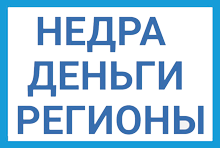On January 13-14 in Atyrau and January 16-17 in Aktobe, the NGO Echo held training and group consultations as part of the project “Improving Women's Knowledge on Gender Budgeting in the Western Regions of Kazakhstan” with the assistance of the Canada Fund for Local Initiatives.
The training included the following topics:
- Budget and gender-oriented budget
- Transparency of extractive industries
- Social and infrastructure projects of subsoil users.
- Gender approach in the EITI. The impact of extractive companies on women.
- Examples of gender approaches in negotiations between extractive companies and the local community.
- Identification of gender issues of local communities.
- Ways of public participation in the formation of the gender budget. Budget cycle.
- Gender Initiatives
- Sources of information.
- Gender statistics
It should be noted that most participants have never heard of gender budgeting, the Extractive Industries Transparency Initiative, and the ability to use the budget and the EITI as a tool to improve the lives of local women and the local community as a whole. Participants received information on gender budgeting and gender initiatives, on the implementation of a gender approach in the implementation of the EITI.
The second day of the training was devoted to discussing the problems of women specific to the region and developing a strategy for solving problems. Most of those present at the training are concerned about the problem of finding jobs for women with many children and single mothers, the lack of training courses for women, and the provision of clean water. It was discussed how to draw the attention of the state, which allocates funds for the development of small business, to the problems of these target groups, and what mining companies can do to solve this problem. Everyone agreed that it is necessary to attract NGOs, civic activists, government bodies and mining companies for multilateral discussion and joint development of recommendations on changes in the budget and the use of social and infrastructure investments to improve the lives of local women.
Among the participants were not only women, but also men who supported the idea of gender equality, representatives of various public organizations, representatives of the akimat, and youth. The presence of representatives of different age groups allowed a broader look at existing problems and develop different solutions. Many participants first learned about the Extractive Industries Transparency Initiative and how to use it in the interests of the local population. This was very important information for them, since the EITI is a real tool for involving civil society, and, in addition, the EITI is starting to introduce a gender approach in the implementation of the initiative.















